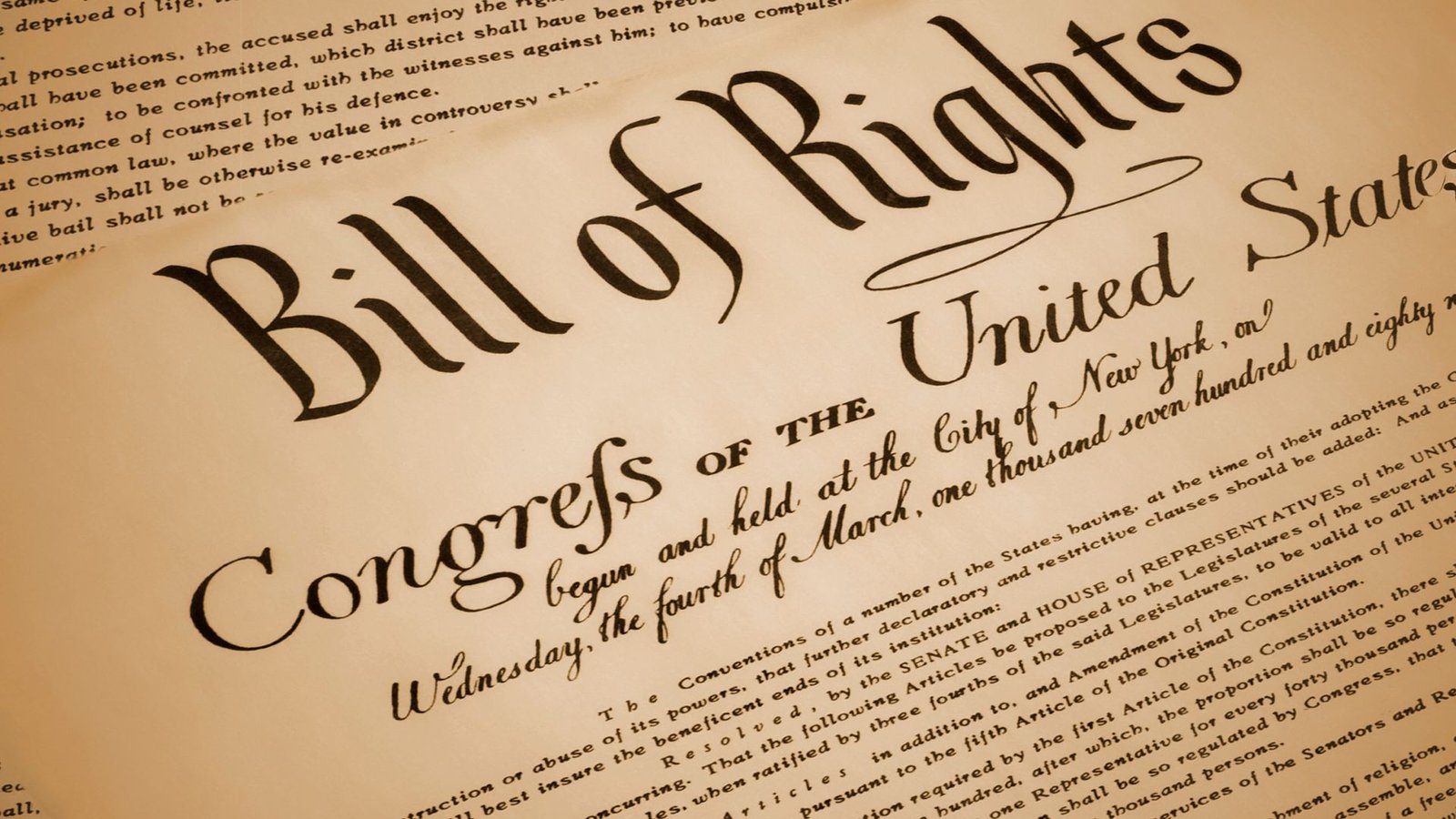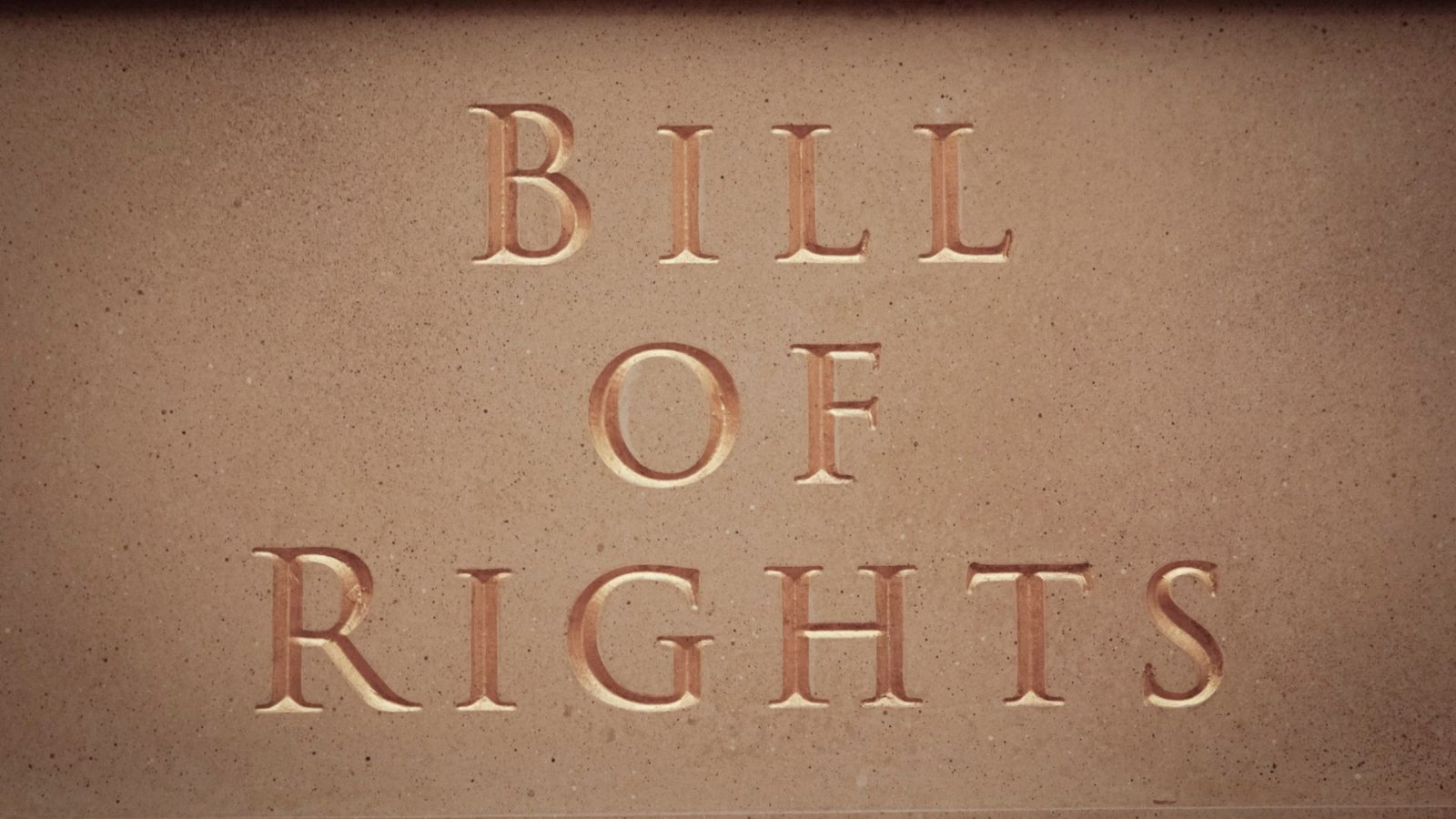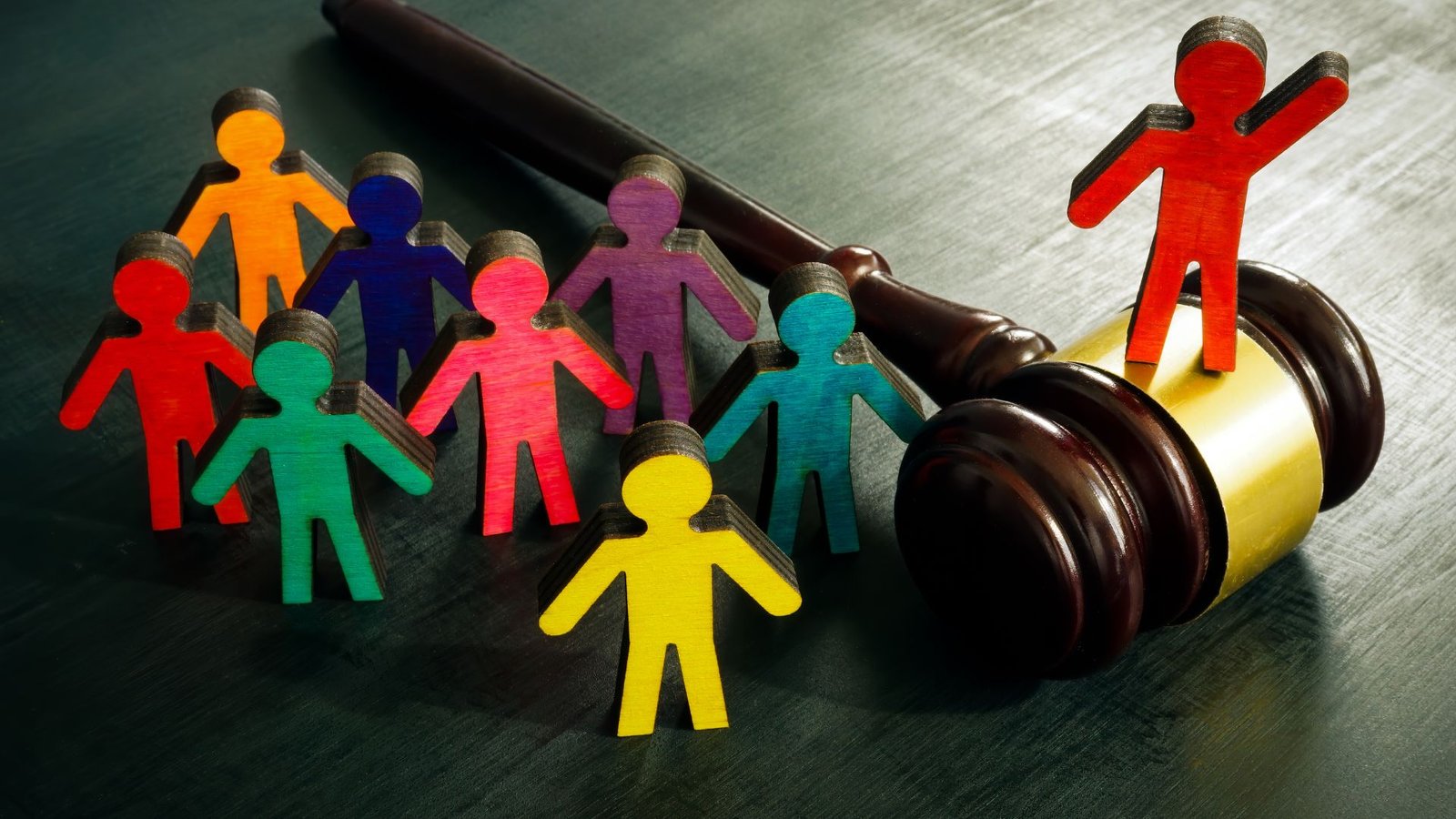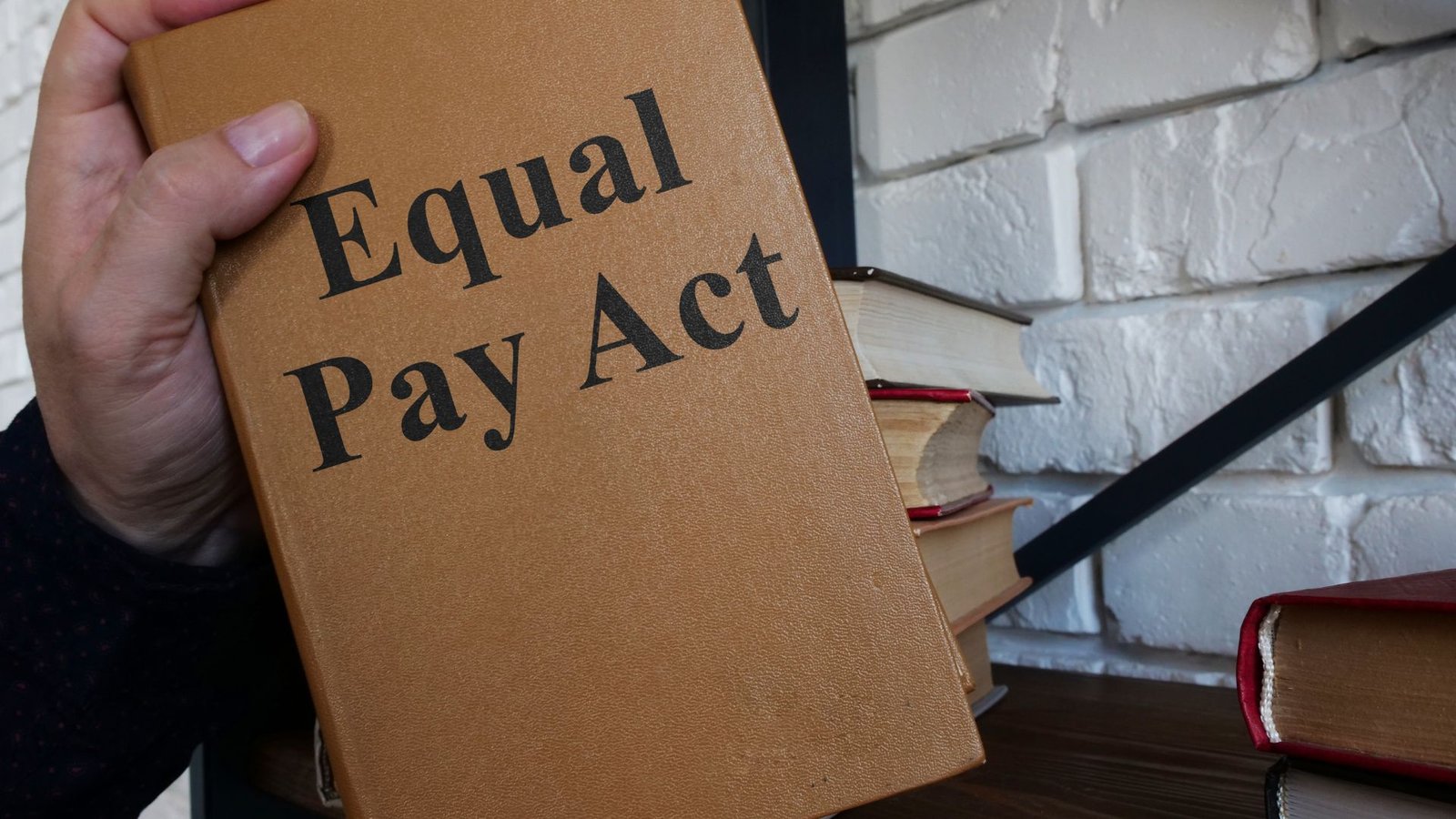On this page you will read detailed information about Bill of Rights of the United States.
As a citizen of this nation, you live under a set of fundamental rights and freedoms outlined in the first ten amendments to the Constitution, known collectively as the Bill of Rights. Ratified in 1791 to limit federal power, these amendments guarantee essential civil liberties that remain relevant over two centuries later. To fully participate in civic life, you must comprehend the origins and modern-day impact of liberties like freedom of speech, freedom of religion, the right to bear arms, protections against unreasonable search and seizure, and rights during criminal proceedings. This foundational document continues to shape public discourse and debate from the dinner table to the Supreme Court. Through this exploration of the Bill of Rights, you can develop a deeper appreciation for both the vision and contradictions of American freedom.
What Is the Bill of Rights?

The Bill of Rights refers to the first 10 amendments of the United States Constitution which enumerate specific rights and civil liberties of American citizens that the federal government cannot infringe upon. The Bill of Rights was added to the Constitution in 1791 to guarantee essential rights and civil liberties of American citizens that were not specified in the original Constitution.
The Bill of Rights protects and preserves fundamental human rights and civil liberties, such as:
- Freedom of speech, press, assembly and petition
- Right to bear arms
- Protection from cruel and unusual punishment
- Right to a speedy and public trial by an impartial jury
- Protection from unreasonable search and seizure
- Right to due process of law
- Equal protection under the law
The Bill of Rights limits the power of the federal government and protects the rights of individuals. It ensures that the basic rights of Americans are upheld and that the government does not have unlimited power over people. The Bill of Rights is considered one of the most important documents in American history because it safeguards the essential rights and civil liberties that the founding fathers believed were necessary to protect individual freedoms and democracy.
Without the Bill of Rights, the government could potentially infringe on important civil liberties and undermine the basic human rights of individuals. The Bill of Rights gives citizens a means to protect themselves from potential tyranny and unjust treatment. It lays the foundation for the American system of constitutional law and the protection of civil rights. The Bill of Rights has endured for over 200 years as a pillar of American democracy and freedom.
In summary, the Bill of Rights refers to the first 10 amendments of the U.S. Constitution that guarantee essential rights and civil liberties of American citizens, limits the power of the federal government, and protects individuals from potential oppression and unjust treatment. It is a cornerstone document that upholds the democratic principles on which the United States was founded.
In the previous post, we had shared information about What Are Natural Rights? An Exploration of Inalienable Freedoms, so read that post also.
History Behind the Bill of Rights of the United States
The Framers of the U.S. Constitution recognized that guaranteeing certain rights and civil liberties of citizens was crucial to the success of the new nation. However, some opponents of the Constitution argued that it did not sufficiently protect individuals’ rights and could allow for tyranny of the majority. To address these concerns, James Madison drafted 19 amendments to the Constitution, 12 of which were approved by Congress and sent to the states for ratification in 1789. These amendments, known collectively as the Bill of Rights, were ratified by the states and added to the Constitution in 1791.
Limiting Government Power
The primary purpose of the Bill of Rights was to limit the power of the federal government and protect citizens from potential abuses of power. The first eight amendments address specific rights and civil liberties, such as freedom of speech, religion, press, and the right to bear arms. They prohibit unreasonable search and seizure, cruel punishment, and compelled self-incrimination. The Ninth and Tenth Amendments further limit government power by specifying that the enumeration of certain rights in the Constitution does not deny or disparage others retained by the people.
Safeguarding Individual Liberties
The Bill of Rights safeguards crucial individual liberties and rights that the Framers believed were essential to freedom. For example, the First Amendment protects the freedom of speech, religion, press, and the right to peaceably assemble. The Fourth Amendment protects citizens from unreasonable search and seizure. The Sixth Amendment guarantees the right to a speedy trial by an impartial jury. These amendments shield citizens from potential tyranny and oppression by the government, helping to secure essential civil liberties that are the foundation of a free and democratic society.
In summary, the Bill of Rights was added to the U.S. Constitution to appease critics, limit government power, and safeguard fundamental individual rights. It has endured for over 200 years as a testament to the Framers’ vision of a nation where essential civil liberties are protected by law. The Bill of Rights continues to shape jurisprudence regarding the relationship between individuals and the government to this day.
The First 10 Amendments That Make Up the Bill of Rights

The Bill of Rights refers to the first 10 amendments to the U.S. Constitution. These amendments were added to guarantee essential rights and civil liberties of American citizens that the federal government could not infringe upon. They were added shortly after the Constitution was ratified in 1788 to address fears that the new federal government was too powerful and could abuse its authority.
Freedom of Speech, Press, Religion and Petition
The First Amendment protects the freedoms of speech, press, religion, and the right to petition the government. It prohibits the government from establishing an official religion or favoring one religion over another. It also protects the rights of citizens to freely express opinions, publish materials, assemble peaceably, and petition the government.
Right to Bear Arms
The Second Amendment protects the right of citizens to bear arms. It protects the right of individuals to possess weapons for self-defense and other lawful purposes. However, it is subject to some restrictions and does not protect the right to bear all types of arms for any purpose.
Protection from Unreasonable Search and Seizure
The Fourth Amendment protects citizens from unreasonable search and seizure. It requires that warrants be judicially sanctioned and supported by probable cause. It prohibits arbitrary arrests, searches of homes, and seizures of property without a warrant.
Right to Due Process, Protection Against Double Jeopardy and Self-Incrimination
The Fifth Amendment protects several important rights of citizens. It guarantees due process, prohibits double jeopardy and self-incrimination. It ensures that no person shall be deprived of life, liberty or property without due process of law. It also prohibits trying someone twice for the same offense, and forcing them to testify against themselves.
Right to Speedy Trial by Jury, Confrontation of Witnesses
The Sixth Amendment protects the rights of citizens in criminal prosecutions. It guarantees the right to a speedy and public trial by an impartial jury, the right to be informed of criminal charges, the right to confront witnesses, and the right to be assisted by counsel.
In summary, the Bill of Rights was added to guarantee essential rights and civil liberties that the federal government could not take away from citizens. They help ensure fairness, justice and due process for all.
Key Rights Protected by the Bill of Rights

The Bill of Rights protects some of the most fundamental rights of citizens in the United States. These first 10 amendments to the Constitution guarantee essential liberties and legal rights for individuals that the government cannot infringe upon.
Freedom of Speech, Press, Religion and Petition
The First Amendment shields citizens’ freedom of expression and religious beliefs. It protects your right to speak freely, publish your opinions, practice your religion as you choose, and petition the government. However, these rights are not absolute. Speech that incites violence or threatens harm is not protected.
Right to Bear Arms
The Second Amendment protects individuals’ right to keep and bear arms for self-defense and other lawful purposes. However, reasonable restrictions may apply, such as background checks, waiting periods, and bans on assault weapons.
Protection from Unreasonable Search and Seizure
The Fourth Amendment protects citizens’ right to privacy and property. It prohibits unreasonable search and seizure, requiring that warrants be judicially sanctioned and supported by probable cause. Evidence obtained in violation of the Fourth Amendment is typically inadmissible in court.
Right to Due Process, Equal Protection, and Fair Trial
The Fifth and Fourteenth Amendments guarantee due process, equal protection of the laws, and fair legal proceedings. They prohibit deprivation of life, liberty or property without due process of law. They require that laws be applied equally to all people regardless of race, religion, or other characteristics. They also guarantee fair and speedy trials, impartial juries, and protection against double jeopardy and self-incrimination.
Right to Vote
The Fifteenth, Nineteenth, Twenty-Fourth and Twenty-Sixth Amendments prohibit denying the right to vote based on race, color, previous condition of servitude, sex, ability to pay a poll tax, and age for those 18 and older. They aim to protect and expand the right to vote for all citizens.
In summary, the Bill of Rights safeguards essential rights and civil liberties of individuals that the government cannot infringe upon. These fundamental freedoms are crucial to democracy and justice in the United States.
Importance and Impact of the Bill of Rights
Cornerstone of American Democracy
The Bill of Rights is the cornerstone of American democracy, safeguarding the civil liberties and fundamental rights of all U.S. citizens. Ratified in 1791, the first 10 amendments to the Constitution protect essential freedoms like speech, press, assembly, and the right to fair legal process. These guarantees have shaped America’s identity as a nation that values individual rights and limits government overreach.
Protection of Civil Liberties
The Bill of Rights protects citizens from potential abuses of power by the government. For example, the First Amendment safeguards the right to free expression and worship without interference by the state. The Fourth Amendment protects against unreasonable search and seizure, requiring law enforcement to obtain judicial warrants based on probable cause before conducting searches. The Sixth Amendment guarantees the right to a speedy and public trial by an impartial jury.
Expansion of Rights Over Time
While the Bill of Rights originally only applied to federal laws, the 14th Amendment extended these protections to state governments after the Civil War. *Landmark Supreme Court cases have also interpreted the Bill of Rights more broadly over time. For instance, the right to privacy and reproductive choice were established in Griswold v. Connecticut (1965) and Roe v. Wade (1973) based on the “penumbras” and “emanations” of multiple amendments.
The enduring importance and impact of the Bill of Rights cannot be overstated. These first 10 amendments have shaped the American system of government and way of life for over 200 years. They represent the nation’s highest ideals of liberty and justice for all. Overall, the Bill of Rights has established a democratic framework that continues to inspire democracies around the world.
Controversies and Debates Surrounding the Bill of Rights
The Bill of Rights protects essential rights and civil liberties of U.S. citizens that are central to American values. However, some of the rights and protections have been controversial and debated since the Bill of Rights was ratified in 1791.
Second Amendment and Gun Rights
The Second Amendment protects the right of citizens to bear arms, but there is ongoing debate around gun control laws and restrictions. Proponents of gun rights believe individuals have the right to own firearms for self defense and recreation. Those in favor of more gun restrictions argue that certain firearms like assault weapons should be banned to help curb gun violence. There is no easy solution to balance these competing perspectives.
Cruel and Unusual Punishment
The Eighth Amendment prohibits cruel and unusual punishment. However, there are disagreements over what constitutes cruelty, especially regarding the death penalty and life imprisonment. Some argue that the death penalty should be abolished altogether due to moral concerns, while others believe it is an appropriate punishment for heinous crimes. There are also debates around the ethics of life imprisonment without parole.
Freedom of Speech
The First Amendment protects freedom of speech, but there are limits and exceptions. Speech that incites violence or threatens harm is not protected. There are also debates around regulating hate speech, defamation, and censorship on private internet platforms. Finding the right balance between open expression and regulation is an ongoing challenge.
The Bill of Rights enshrines fundamental rights, but also raises complex issues without straightforward solutions. Varying interpretations of the protections and limits of rights have spurred debates that shape the meaning of liberties in the U.S. Understanding the controversies surrounding the Bill of Rights helps foster a more nuanced perspective on civil rights and governance. Overall, the Bill of Rights aims to secure essential freedoms, justice and democratic principles that Americans continue working to fulfill.
How the Bill of Rights Has Evolved Over Time
The Bill of Rights were the first 10 amendments added to the U.S. Constitution in 1791. They were ratified to guarantee essential rights and civil liberties of American citizens that the federal government could not infringe upon. However, the interpretation and application of these rights has evolved as society and the country have changed.
The 1st Amendment protects the rights to free speech, religious freedom, press, and assembly. Originally, free speech was interpreted as protecting political dissent, but it now also protects artistic expression, academic freedom, and commercial speech. The definition of “religion” and religious freedom has also expanded beyond traditional faiths to include any sincerely held beliefs.
The 2nd Amendment’s right to bear arms initially applied to militias and muskets, but now also protects an individual’s right to own handguns, rifles, and other firearms for self-defense in the home. However, reasonable restrictions like background checks and assault weapons bans are still allowed.
The 4th Amendment protects against unreasonable search and seizure. Its scope has grown from physical places and papers to now include protections against unreasonable government surveillance and the interception of digital communications and data. Still, the government can conduct searches with a warrant issued by a judge based on probable cause.
The 8th Amendment’s ban on cruel and unusual punishment once allowed executions and harsh discipline but now prohibits those and protects prisoners’ basic rights. The death penalty is allowed but rare, and prison conditions must meet basic standards of decency.
The 14th Amendment’s equal protection clause was originally meant to protect the rights of black Americans after the Civil War but now prohibits discrimination based on race, religion, national origin, gender, sexual orientation, disability status, and other characteristics.
The Bill of Rights remains a living document. As society progresses, the rights and protections it establishes continue to evolve through legislative amendments, Supreme Court rulings, and cultural changes in values and norms. Overall, its fundamental purpose to limit government overreach and protect essential civil liberties remains, but its specific applications transform with the times.
Facts About the Bill of Rights of the United States
The Bill of Rights consists of the first 10 amendments to the U.S. Constitution. It guarantees essential rights and civil liberties of American citizens that the federal government cannot infringe upon. Here are some interesting facts about this integral document:
The Bill of Rights was drafted by James Madison in 1789 and ratified in 1791. It was created to address concerns that the original Constitution did not protect individual liberties. Madison proposed 19 amendments, of which 12 were submitted to the states. Only 10 were ratified and became the Bill of Rights.
The 1st Amendment protects freedom of religion, speech, press, assembly, and petition. It ensures that the government cannot establish an official religion or favor one religion over another. It also protects citizens’ rights to express their opinions, publish materials, peacefully protest, and petition the government to address issues.
The 2nd Amendment protects the right of citizens to bear arms. There is ongoing debate around the exact intent and scope of this amendment regarding individuals’ right to own firearms.
The 4th Amendment protects citizens from unreasonable search and seizure. It requires that warrants be judicially sanctioned and supported by probable cause.
The 5th Amendment protects the right to due process, prohibits double jeopardy and self-incrimination, and ensures that private property shall not be taken for public use without just compensation.
The 8th Amendment prohibits cruel and unusual punishment. It protects individuals from excessive bail, fines, and cruel or degrading punishment.
The 10th Amendment reserves powers not delegated to the federal government for the states and the people. It limits the power of the federal government and protects states’ rights.
The Bill of Rights safeguards essential rights and liberties that define American democracy. Despite its brevity, it has enduring importance in the U.S. legal system and broader society. Understanding the Bill of Rights helps citizens appreciate the freedoms they enjoy and shape discussions around civil liberties.
Bill of Rights of United States FAQ
When the U.S. Constitution was first ratified, many citizens felt it did not sufficiently protect important civil liberties and individual freedoms. The Bill of Rights was added as the first 10 amendments to address these concerns. Understanding your rights as an American citizen is crucial. Here are some frequently asked questions about the Bill of Rights:
The first 10 amendments to the U.S. Constitution are collectively known as the Bill of Rights. They were added to protect essential individual liberties and civil rights of American citizens that were not specified in the original Constitution.
The Bill of Rights protects several fundamental rights of individuals:
I) Freedom of speech, religion, press, and assembly (1st Amendment)
II) Right to bear arms (2nd Amendment)
III) Protection from unreasonable search and seizure (4th Amendment)
IV) Right to due process, protection against cruel punishment (5th and 8th Amendments)
V) Right to speedy trial by an impartial jury (6th Amendment)
Yes, like any other amendment, the Bill of Rights can be changed through the amendment process outlined in the Constitution. However, because these first 10 amendments protect fundamental civil liberties, changing them would be an immense undertaking and is unlikely.
Originally, the Bill of Rights only applied to actions by the federal government. However, since the passage of the 14th Amendment and various Supreme Court rulings, most of the provisions in the Bill of Rights now also apply to state and local governments. This is known as the incorporation doctrine.
The Bill of Rights is tremendously significant in American history. It helped gain popular support for ratification of the Constitution by protecting essential civil liberties and rights that were not specified in the original document. The Bill of Rights has become a model for democracies around the world seeking to establish and safeguard individual freedoms.
Conclusion
As you have seen, the Bill of Rights outlines fundamental rights and freedoms central to the principles of American democracy. While initially ratified over two centuries ago, these ten amendments remain profoundly relevant today in protecting individuals against government overreach. As American citizens, it is our shared duty to uphold the spirit of the Bill of Rights by staying informed of our guaranteed rights and exercising them responsibly. We must also remain vigilant in calling out infringements when they occur. By honoring the Bill of Rights both in principle and practice, we help ensure that the ideals at the heart of this nation live on.
Disclaimer
The information and services on this website are not intended to and shall not be used as legal advice. You should consult a Legal Professional for any legal or solicited advice. While we have good faith and our own independent research to every information listed on the website and do our best to ensure that the data provided is accurate. However, we do not guarantee the information provided is accurate and make no representation or warranty of any kind, express or implied, regarding the accuracy, adequacy, validity, reliability, availability, or completeness of any information on the Site. UNDER NO CIRCUMSTANCES SHALL WE HAVE ANY LIABILITY TO YOU FOR ANY LOSS OR DAMAGE OF ANY KIND INCURRED AS A RESULT OR RELIANCE ON ANY INFORMATION PROVIDED ON THE SITE. YOUR USE OF THE SITE AND YOUR RELIANCE ON ANY INFORMATION ON THE SITE IS SOLELY AT YOUR OWN RISK. Comments on this website are the sole responsibility of their writers so the accuracy, completeness, veracity, honesty, factuality and politeness of comments are not guaranteed.
So friends, today we talked about Bill of Rights of the United States, hope you liked our post.
If you liked the information about Bill of Rights of the United States, then definitely share this article with your friends.









